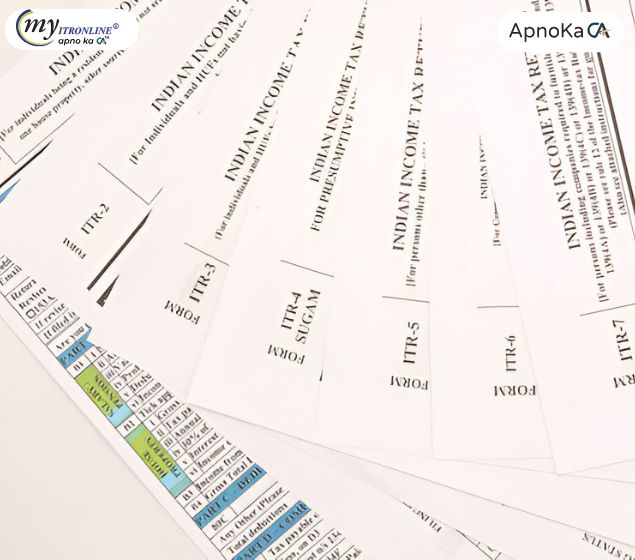# itr2
12 posts in `itr2` tag

Refund Adjusted Against Outstanding Demand: What You Need to Know
If your income tax refund is adjusted against an old tax demand, it’s likely due to Section 245 of the Income Tax Act. This blog explains what the notice means, how to respond within 30 days, and what options you have. Learn how to protect your refund and keep your tax records clean.

Breaking: Presumptive Taxation Moves to Section 58 - Complete Guide
The Income Tax Act 2025 introduces Section 58, replacing Section 44AD for presumptive taxation of small businesses. This provision applies to eligible assessees with turnover up to ₹2-3 crore, offering simplified tax computation at 6% for digital transactions and 8% for other receipts, or actual profit—whichever is higher. The change promotes digital payments and reduces compliance burden for small businesses while maintaining revenue collection efficiency.
.jpg)
How NRI Dividend Is Taxed in 2025: Rates, TDS, and Tax Planning
In 2025, NRIs receiving dividend income from Indian companies face a flat 20% tax plus surcharge and cess, deducted at source. With the abolition of Dividend Distribution Tax (DDT), the tax burden now lies with investors. However, NRIs can lower this liability using DTAA benefits, proper documentation, and strategic tax planning. This blog breaks down dividend tax rules, TDS rates, refund claims, and smart investment strategies to help NRIs make the most of their India growth story.
.jpg)
Unlock Past Tax Corrections: Excel Utilities for Updated ITR-1 & ITR-2 (AY 2021-22 & 2022-23) Now Live!
The Income Tax Department has launched Excel utilities for filing Updated Returns (ITR-U) for Assessment Years 2021-22 and 2022-23, extending the filing window to 48 months as per the Finance Act, 2025. This blog details who can file ITR-U using ITR-1 and ITR-2, explains the new deadlines, outlines the penalty structure, and provides a step-by-step guide on using the Excel utilities to declare additional income and ensure tax compliance.
.jpg)
ITR-2 Filing Just Got Easier: Pre-filled Data Now Online!
The Income Tax Department has made it much easier to file ITR-2 by allowing online submission with pre-filled data. This change cuts down on manual entry, reduces mistakes, and makes it more convenient for individuals and HUFs who have different income sources. This blog post outlines these advantages and recommends myITROnline as a reliable partner for smooth tax filing.
.jpg)
ITR Forms AY 2025-26: Your Easy Guide to Choosing the Right One
This guide makes it easier to choose the right Income Tax Return (ITR) form for Assessment Year (AY) 2025-26 (Financial Year 2024-25). It explains each ITR form (ITR-1 Sahaj, ITR-2, ITR-3, ITR-4 Sugam, ITR-5, ITR-6, ITR-7) by outlining who can use each one, who cannot, and the specific income sources or taxpayer categories they cover. The guide also notes important updates for AY 2025-26, including the inclusion of certain LTCG in ITR-1 and ITR-4, changes in VDA reporting, updated capital gains segregation, higher thresholds for asset and liability reporting, and required deduction disclosures. The purpose is to help individuals and entities choose the right form for accurate and compliant tax filing.
.jpg)
ITR-2 & ITR-3 Excel Utilities Are LIVE! Your Essential Guide to Filing for AY 2025-26
This blog post announces the release of ITR-2 and ITR-3 Excel utilities for AY 2025-26. It explains which taxpayers must use these forms and highlights important updates from the Finance Act, 2024. These updates include changes to capital gains segregation, share buyback rules, and higher asset reporting thresholds. The post describes the benefits of using Excel utilities and offers a clear, step-by-step guide for filing. It stresses key points like the e-verification deadline and the need for accuracy and good record-keeping to ensure smooth compliance.
.jpg)
Understanding Interest Under Sections 234A, 234B, and 234C of the Income Tax Act
Sections 234A, 234B, and 234C of the Income Tax Act deal with interest charged for late filing of returns, underpayment, or deferment of advance tax. This blog explains each section in detail with examples and calculations, helping taxpayers stay compliant and avoid extra charge
.jpg)
Income Tax Notice under Section 143(2): Meaning, Scrutiny Process, Deadlines & Response Guide
Have you received a notice under Section 143(2)? Don’t panic. This blog explains what it means, why it’s issued, the deadlines to track, and how to respond effectively ensuring you're well-prepared for any scrutiny with confidence.

Understanding ITR Forms (ITR-1 to ITR-7) for AY 2025-26: Selecting the Appropriate Form for Your Earnings
This blog post serves as a comprehensive guide to selecting the correct Income Tax Return (ITR) form (ITR-1 to ITR-7) for Assessment Year 2025-26 (Financial Year 2024-25). It begins by emphasizing the importance of choosing the right form to avoid penalties and highlights the extended filing deadline for individuals and HUFs. The post then details important updates for AY 2025-26, including changes to LTCG reporting in ITR-1/4, compulsory detailed disclosures for old regime deductions, new TDS section requirements, revised asset reporting thresholds, and the default new tax regime. A simplified overview of applicability and exclusions for each ITR form (ITR-1 to ITR-7) is provided. Finally, it uses seven practical case studies to illustrate how different taxpayer profiles (salaried, freelancers, businesses, firms, companies, trusts) can correctly identify their applicable ITR form. The synopsis concludes by advising readers to consult official guidelines and tax professionals for accurate filing.

200% Fine & Prosecution: What New ITR Rules Mean for You
This blog post warns taxpayers about the updated ITR regulations, highlighting the drastic consequences of under-reporting or misreporting income, including a 200% penalty and potential criminal prosecution. It explains why the Income Tax Department is increasing scrutiny through data analytics and detailed ITR forms, and provides essential steps for taxpayers to ensure compliance and avoid severe financial and legal repercussions.

Section 194C Explained: TDS on Contractor Payments & How to Report It in Your ITR
This blog post serves as a complete and detailed guide for businesses and individuals to understand Section 194C of the Income Tax Act, 1961. It explains TDS obligations on payments to contractors, outlines applicable rates and thresholds, and most importantly, teaches how to correctly report these deductions in your Income Tax Return (ITR). From verifying Form 26AS and AIS to avoiding mismatch notices, this article helps you ensure compliance, avoid scrutiny, and maintain a clean tax record.
